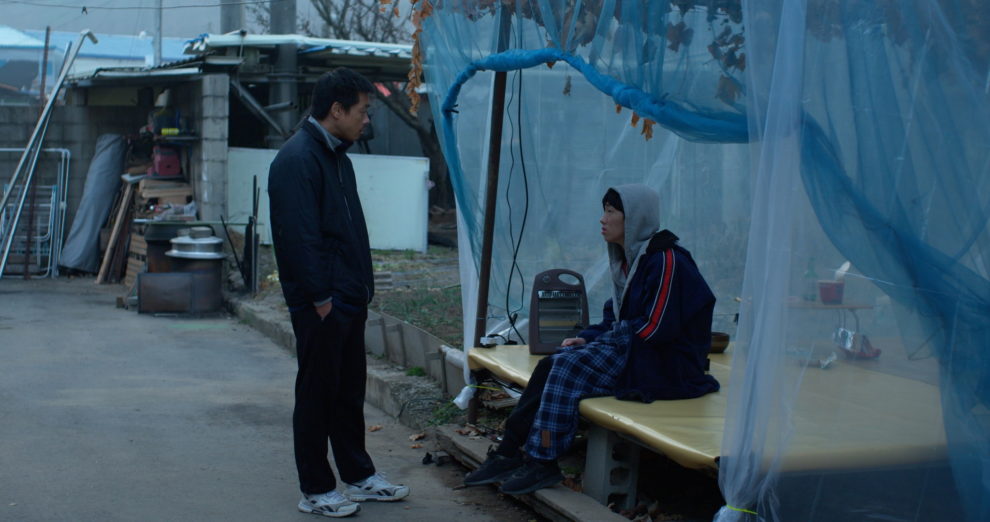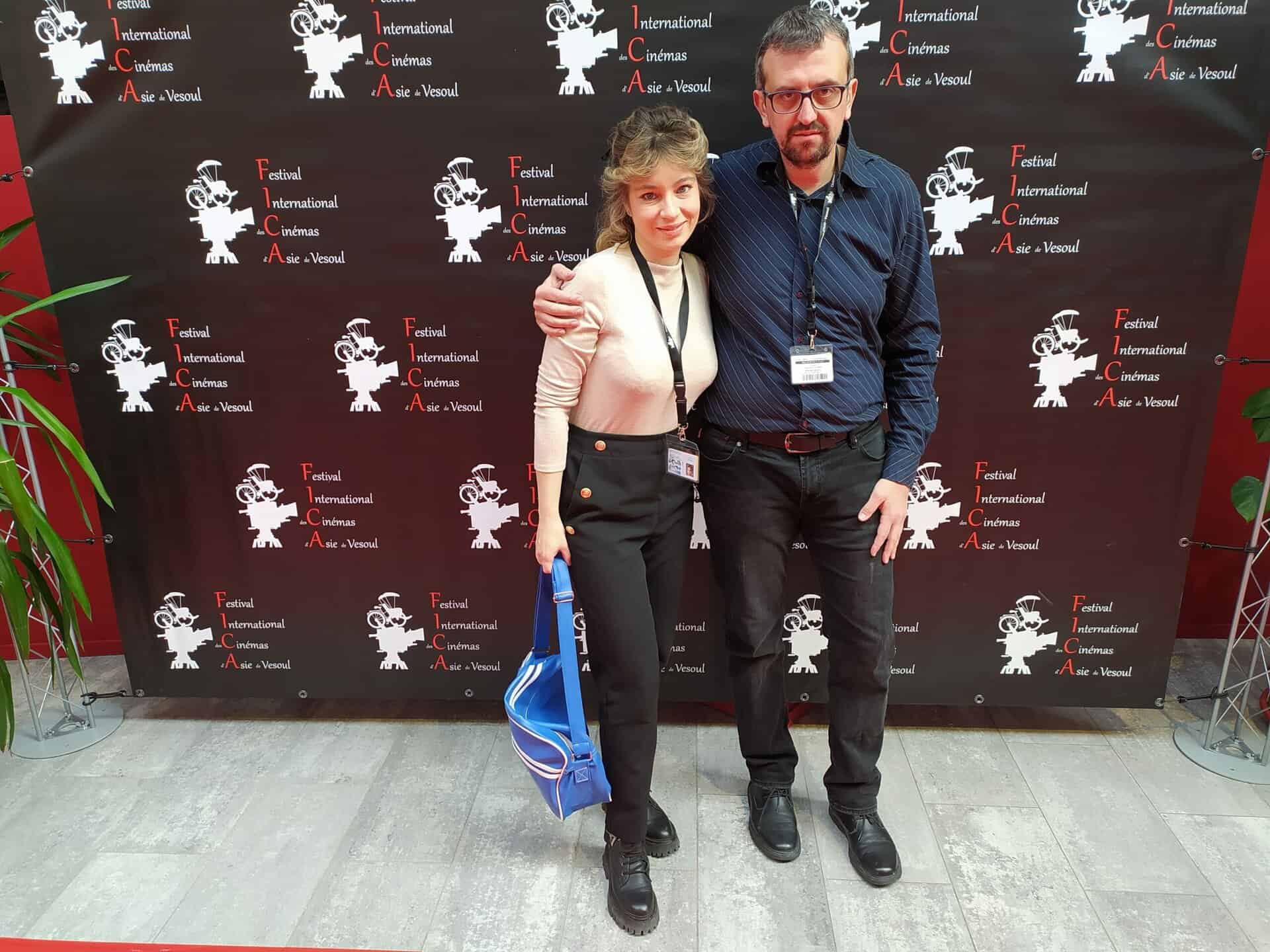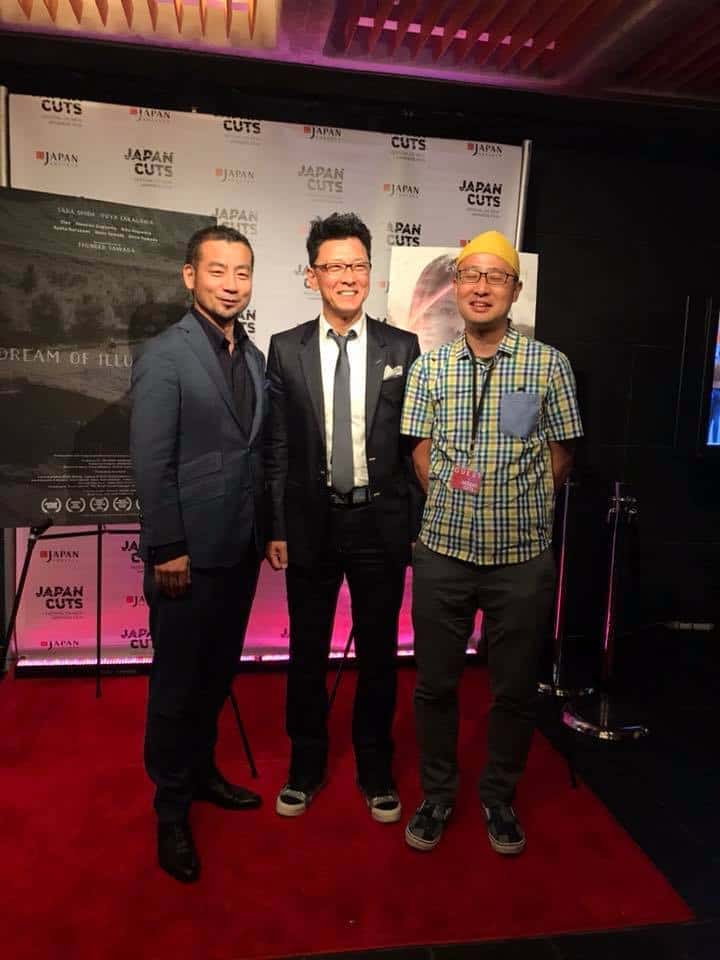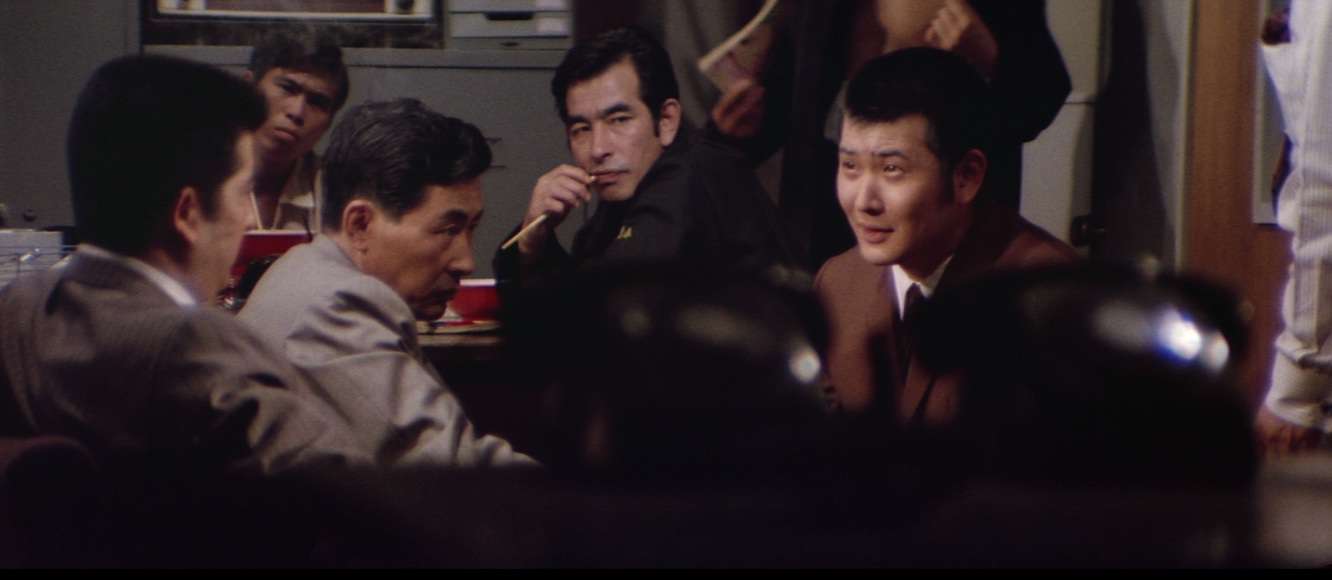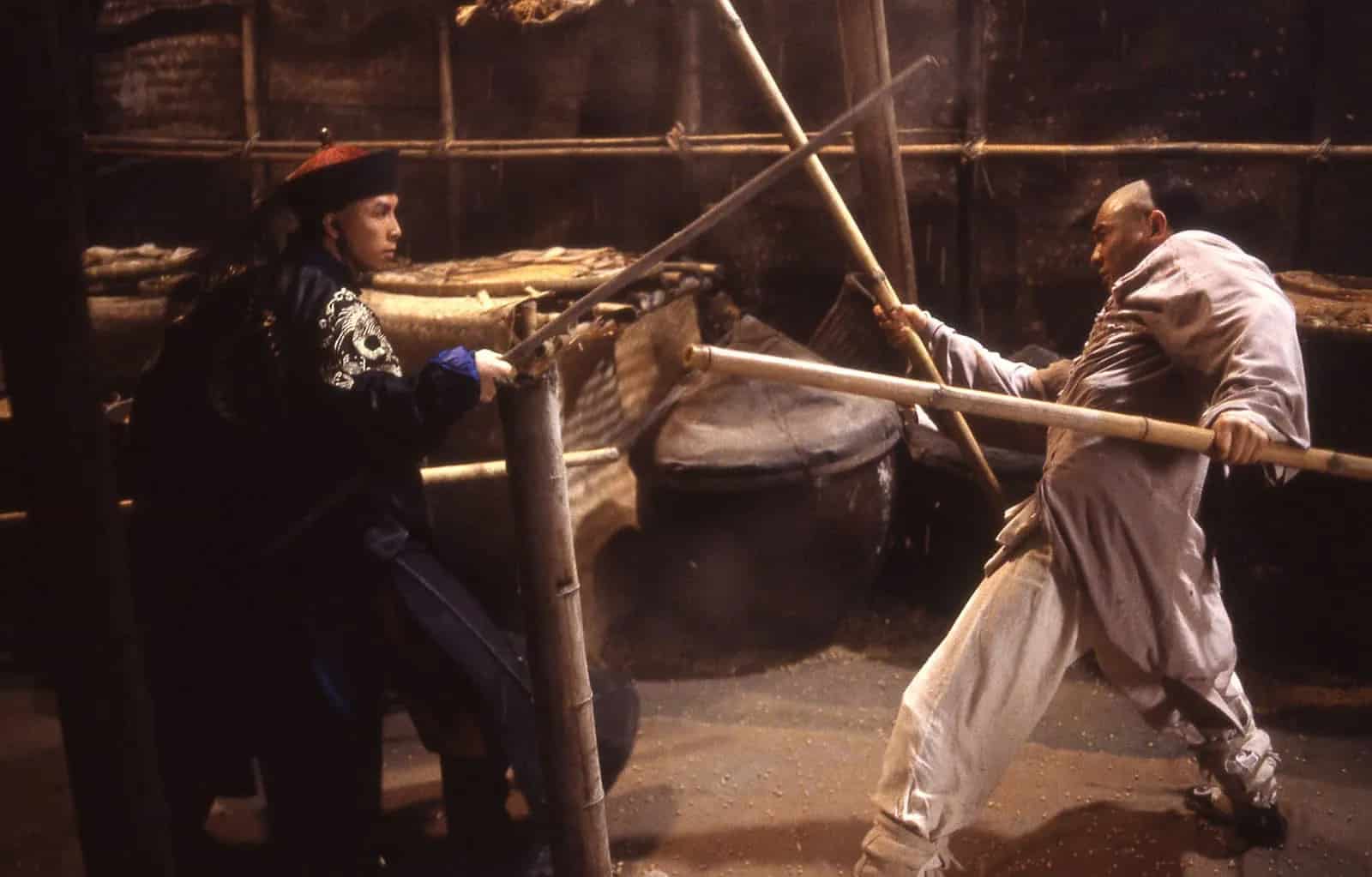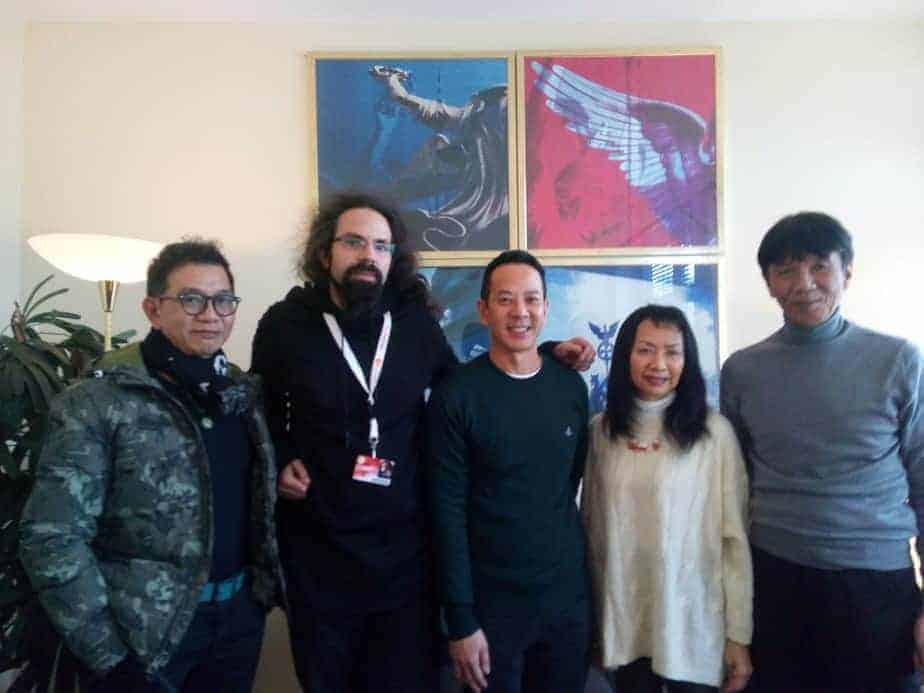Hong Kong Family by Eric Tsang Hing Weng – The Humiliated Family Man
The first half hour of “Hong Kong Family” unfortunately promises much more than the film can eventually deliver. The characters are introduced, precisely and already in a bitingly ironic tone. It's about the titular family. It consists of a father, a mother, a daughter and a son. At the beginning of the film, they are just getting into the car to go to the grandmother, the mother of the mother, to celebrate her birthday. The first argument breaks out when the man wants to keep the basket of pastries on his lap so that it doesn't spill out in the trunk during the drive, but the woman puts it in the trunk anyway. Then it is about the fact that the man has no job and, according to his wife's idea, does not try hard enough to find a new one and does too little at all.
Arriving at the grandmother's house, the story continues seamlessly. First, the other son of the old woman quarrels with his mother because she accuses him of having stolen money from her and he runs away in a rage, then the husband and wife shout at each other because the man does not care for the woman who has cut her finger. She threatens divorce, his fuses blow and he threatens her with a knife in his hand. This leads to a break between father and son, who can no longer forgive the father for this scene and therefore runs away from home.
Honor, sacrifice and family are what this drama from Hong Kong is about. Unfortunately, neither the acting, which seems quite amateurish in places, nor the density of the plot reaches the so promising beginning. The story drags on, it becomes very sentimental and it doesn't seem to be really well motivated. The quarrel between father and son can only be understood to a certain extent. The son blindly takes sides with the mother and completely neglects the fact that she is by no means the victim in this matter.
“Hail to Hell” by Lim Oh-jeong – Hell is everywhere.
Na-mi and Sun-woo are both victims of teasing and harassment from their classmates. They can't take it anymore and want to commit suicide, but the attempt fails. Instead, they first want to take revenge on Chae-rin, who has particularly hurt them and now apparently lives a nice life in Seoul. So they seek her out and find out that she is in a religious community that has supposedly made her a better person. At first they are skeptical, but then they realize more and more that this is a cult that is anything but altruistic with its members.
The film takes up themes such as purification, faith, friendship and violence. In the process, the sphere of the youths is no different from that of adults. Greed, jealousy and inferiority complexes exist in both. The plot does not lead to a simple solution; on the contrary, it points to a vicious circle. Nevertheless, the film ends on a somewhat hopeful note. The Korean director has already set the bar very high with this, her feature film debut. She narrates precisely, has a sense of rhythm and also irony. Her characters are multifaceted and not simple decals that she divides into victims and perpetrators.
“Greenhouse” by Lee Sol-hui – It's hard to be happy
Moonjung tries to do everything right. She seeks professional help for her mental illness, works for an elderly couple, and prepares a home for herself and her son, who is soon to be released from juvenile detention. But then an accident occurs, the elderly woman, falls and hits her head. What she does next sets off a tragic chain reaction.
“Greenhouse” is the first full-length feature film by the Korean director. In itself, the story she tells here is a bit thin, but the psychology of the protagonist is carefully developed. Her mental illness is not exaggerated, not moralized. As a viewer, you also find understanding for her actions, although Moonjung remains a stranger to you until the end. The film deliberately maintains a certain distance from her. There are no bad guys in this story, only people who try to be happy and useful in their little one.
“Big Sleep” by Kim Taehoon – Two misfits
Kiyoung is a grumpy loner. He hauls boxes every day without asking for much. Otherwise, he takes care of the many plants his mother left him and brings money to his father's new wife from time to time. In front of his house, an apparently homeless boy has found a place to sleep. Kiyoung lets him spend the night. This one night turns into more. The two slowly become friends. Kiyoung also knows the feeling of being lost and the indefinable inner rage that the boy has inside him.
“Big Sleep” is the directorial debut of Korean Kim Taehoon. It is about cohesion, about loneliness and about a society that is often satisfied with superficial observations. The film tells of neglected youths whose self-esteem is not strengthened by anyone and who therefore want to test and prove themselves in adventurous, criminal actions. Nevertheless, they are not drawn as victims. Kiyoung offers one boy an alternative, but he cannot force him. The confrontation with each other, however, still allows them to grow. The drama is calmly staged, does without dramatic twists and turns and has found two expressive actors in the two main roles with Kim Youngsung and Choi Joonwoo. The mood of the film is somewhat reminiscent of “Breathless” by Yang Ik-june, in which a lonely bill collector meets a young girl and befriends her. However, “Big Sleep” is not quite as dense and lastingly impressive.
“Highway Family” by Lee Sangmoon – Family Cohesion
They live at highway rest stops, sleep in a tent, mooch off motorists for some change, wash up in public restrooms. For the two preschoolers, everything is an adventure. But the mother is heavily pregnant with the third child, and the police are receiving more and more calls from people complaining about the family man's scam. One of them is the owner of a second-hand furniture store. She contributes to the arrest of the father, who is already wanted for a major fraud case. Because she feels sorry for the woman and the children, she brings them to her.
The drama is the feature debut of Korean director Lee Sangmoon. He has found a good mix between tragedy and also more light-hearted elements. The two children play surprisingly differentiated and otherwise, the performances of Ra Mi-ran, who plays the businesswoman, and Jung Il-woo as the family man disgusted by society, stand out the most. The strength of the film is that the story is not out to bring about a purification in the protagonists. Accordingly, there is no moral condemnation of their previous decisions. “Highway Family” is about solidarity and family and that family does not necessarily consist of members of the same blood, but can also be a community of wills.


